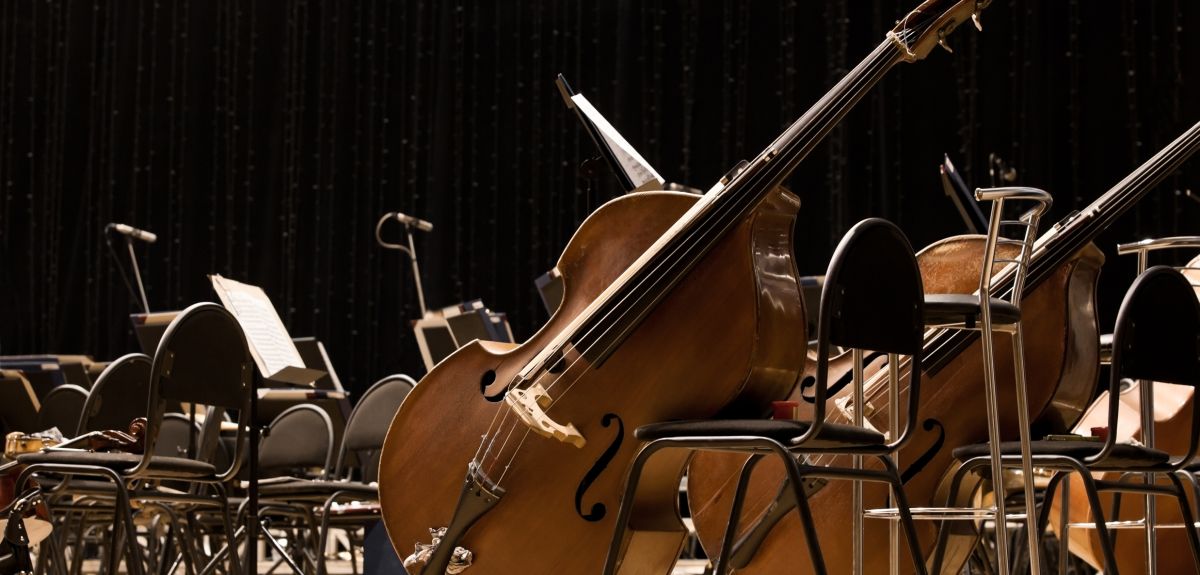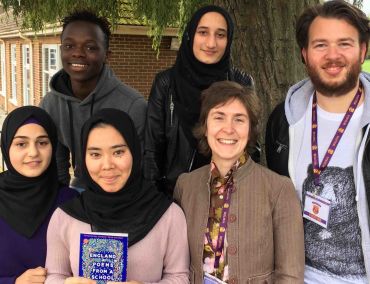
Image credit: Shutterstock
Displaced voices in Oxford
Dr Toby Young, Gianturco Junior Research Fellow at Linacre College, writes for Arts Blog about the Displaced Voices project. Read the previous blog post on Displaced Voices here.
Displaced Voices is an initiative that brings together school and university students with the professional musicians of the Orchestra of St John’s, community members, refugees and asylum seekers through musical collaboration, and raises awareness about refugee issues in Oxfordshire through the medium of artistic expression. Together with conductor, researcher and activist Dr Cayenna Ponchione, I have been working over the past term with four creative, intelligent and emotionally mature refugee students from the Oxford Spires Academy to help give voice to their lived experiences of forced migration.
Through the creation of live orchestral ‘backing tracks’ to underscore spoken word performance of their own poetry – developed as part of an award-winning poetry programme developed by Kate Clanchy – we have been exploring how music might help magnify the strong emotional content of these unique and moving stories, creating a musical experience somewhere akin to the accompaniment of a rousing or emotional speech in film music. As well as offering technical and aesthetic discussions of the ways in which music can support, enhance or even subvert spoken text, our group sessions have involved a certain amount of discussion about the student’s experiences. Even reflecting on these stories now, months after first hearing their shocking accounts of living in brutally war-torn countries and undergoing distressing journeys to seek protection in the UK, gives me chills.
 Dr Toby Young and Dr Cayenna Ponchione-Bailey with students from Oxford Spires Academy.
Dr Toby Young and Dr Cayenna Ponchione-Bailey with students from Oxford Spires Academy.As well as a direct collaboration on the students' spoken performances, I have been writing my own setting of one of the student’s poems to be sung by the mezzo-soprano Charlotte Tetley. Compared to my other experiences of working with text (by both historical and living writers) this process has thrown up a lot more challenges: for example, techniques and methods I might have used to engage with to texts in the past – perhaps by trying to empathise with the text through connection to my own lived experiences (in this case my homesickness or experience of injustices), or by trying to think of the poem as a sort of atmospheric backdrop to key words or phrases – feel unethical and unfair. These stories are hugely personal and poignant to the students, with every word being critical for an authentic and unfiltered representation of their stories in specifically the way they need to be told. In contrast to historical texts where adding my own meaning, experience and ownership to a text is taken for granted, my role here is of translator, not re-interpreter.
Running alongside the creative component of Displaced Voices is a research project that seeks to methodically and critically understand the impact of these activities and concerts on not only the students, but also other individuals who might come into contact with the music (for example the orchestral musicians, teachers, audiences and so on). As well as trying to evaluate how effectively students feel that the music has enhanced or detracted from the emotional meaning of their poems, we are interested in understanding how the whole process – both the challenges and rewards – might impact on the students’ lives. Watching the students’ develop into confident and talented young public speakers has been truly inspirational, and seeing how music has afforded them an increased confidence in their stories and identities has been deeply moving. Through this and future projects, it is our hope that we are able to help support the development of these unique young people as future leaders and agents of social change, amplifying their powerful stories to new parts of society so that their experiences might help those in power to better consider how they might support the cultural integration and wellbeing of young migrant children all over the country.
To date no research has been conducted on an orchestral engagement project like this one, and it is our hope that the findings of this study will inspire and inform other orchestras to create similar projects. I cannot emphasise enough how strongly I recommend other organisations consider using the methods we have piloted here to engage with refugee and migrant communities near them. It has been one of the most inspiring, moving and valuable experiences of my life, and I leave the process a transformed musician and human being.
Displaced Voices will be performed in Somerville Chapel, Oxford on 18 January, preceded by a panel discussion exploring the issues facing refugees in the UK and a showcase of poetry on the subject of displacement, migration and home. For further information, and to book, click here.